
Environmental Anthropology

Interrelations between humans and their environment have always played an important role in human history. Today they are often viewed as problematic and vulnerable. Apart from global climate change and the loss of biodiversity, regional degradation phenomena and resource scarcity also contribute to fundamental changes in living conditions.
Local, national, and international measures respond to these changes and seek to create the foundations for sustainable use and resilience: Biodiversity, species, and landscape conservation, measures to reduce greenhouse gases and attempts to promote human-environmental relations adapted to climate change.
The research and teaching network for anthropological research on the dynamics of human-environmental relations has been firmly established at the Cologne Department of Cultural and Social Anthropology for three decades. The members of the network contribute to the exchange and debate among academics through their different research and learning activities at national and international level.
The central research projects and their staff are closely connected through regular meetings in reading groups and events.
Environmetal Anthropology in the B.A. and M.A. Degree Programme
The major introduction to Environmental Anthropology is integrated in the advance module 1 (AM1) in the B.A. degree program.
In the M.A. degree program, this basic knowledge will be systematically further developed within the frame of the major module "Anthropology of Socioeconomic Organization and Anthropology of the Environment" (SM1).
Methodical training
Within the training on methods, emphasis is placed on comprehensive multi-perspective and practical training. The courses provide both, knowledge of qualitative and quantitative social and cultural research, and awareness to the methodical approaches of neighboring disciplines.
Field research
You gain practical competencies in this field through your own fieldwork exercises. The focus is on the critical reflection of discursive structures in the area of human-environment policy, methodological and theoretical approaches of anthropological human-environment research as well as on the limitations and possibilities of interdisciplinary approaches.
Acquirement of practical knowledge in the area of cultural (anthropological) environmental research
You acquire practical experience through relevant accompanying internships, intensively prepared empirical thesis and the cooperation in projects, which are supposed to guarantee the management of human-environment relations.
The aim of this module is to provide students with a specialized and critical understanding of different approaches to anthropological human-environment research. The following approaches play a particular role:
- Globalization research and local human-environment relations
- Theories of institutions and the emergence and maintenance of social institutions for environmental management
- Perspectives of political ecology on social inequality, power, and environment
- Cognitive and critical knowledge research and their access to human-environment questions
You learn how to achieve scientifically sound knowledge and to present and communicate it in an appropriate way, taking social, ethical and scientific criteria into account.
Thematic focus of Environmental Anthropology
A common starting point of the major module is the interweaving of human behavior in culturally and bio-geophysically constructed environments, perception and knowledge of ecological processes, institutions of the management of natural resources, local as well as global power constellations and morality and conviction systems. The local processes observed by ethnologists are intensively linked to global dynamics. Issues of globalization and localization of human-environment relations are an integral part of the research and teaching of this module.
Different subject areas of human-environment research play a role in teaching and research such as:
- The responses to and in particular adjustments to global environmental change
- Social institutions and the management of natural resources
- The various institutions natural resources management and factors such as gender, perception and systems of belief in the environment
- Mobility and environmental use
- Resource conflicts and political ecology
- The clashing of various environmental knowledge types and worldviews / ontological principles
- Negotiation of various forms of resource protection
- Perception and normative assessment of environmental processes
The topics of political ecology, land rights, environmental management, nature conservation, and climate change are regularly taught in seminars with a major focus on Southern Africa. In South East Asia, a central focus is on the causes of deforestation (such as wood felling, palm oil expansion and mining), on their socio-economic impact, and on the rights of ethnic minorities / indigenous populations.
Research Projects on Environmental Anthropology
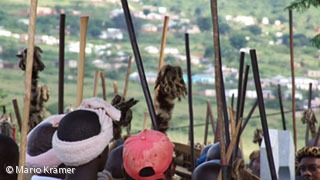
All Current Research Projects at the Department

ERC Advanced Grant "Rewilding the Anthropocene"
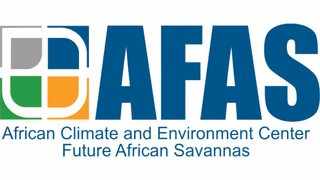
African Climate and Environment Center - Future African Savannas (AFAS)

SFB TR 228 | CRC 228 - Future Rural Africa
Future-making and social-ecological transformation
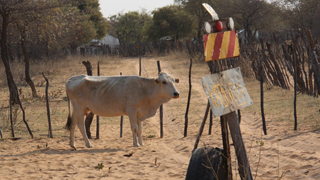
NamTip
Social and Cultural Implications of Desertification Tipping Points in the Namibian East Communal Rangelands
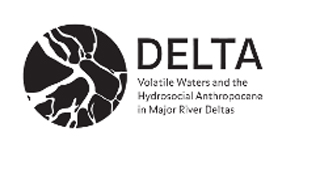
DELTA
Volatile Waters and the Hydrosocial Anthropocene in Major River Deltas
Completed Research Projects

GlobE – Research for the global food supply
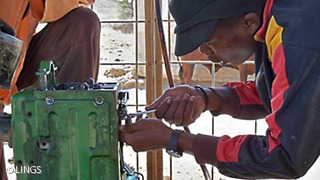
LINGS – Local Institutions in Globalized Societies
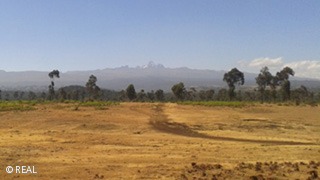
REAL – Resilience in East African Landscapes
